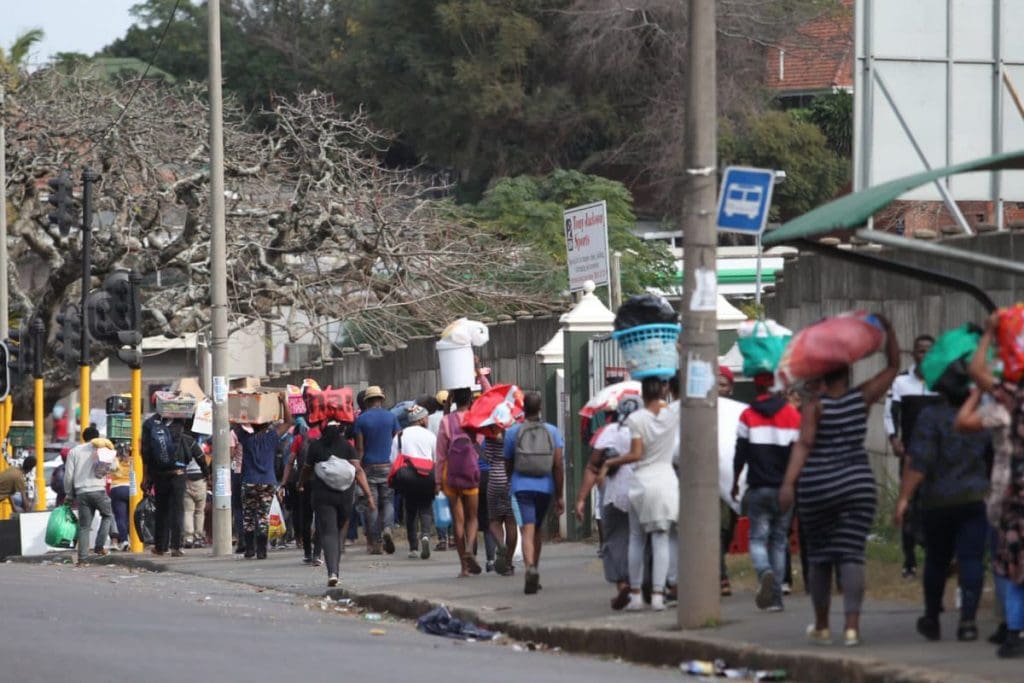The ongoing violence in South Africa’s KwaZulu-Natal province and the surprising inaction by law enforcement agents have raised questions about the real motive behind the disturbances and whether an invisible “third force” is pulling the strings.
What started off on July 9 as a protest to push for the release of former president Jacob Zuma has morphed into South Africa’s biggest political crisis since the dawn of independence in 1994 amid rampant looting of shops, arson attacks and general lawlessness in the province.
The looters have targeted retail shops and industrial warehouses in KwaZulu-Natal with ease over the past few days while police officers watched casually or were not visible at all.
There has also been little visibility of South African National Defence Force troops who were deployed by President Cyril Ramaphosa on Monday.
The lethargic response by the security forces has forced members of affected communities deciding to take the law into their own hands by protecting local shopping malls and controlling movements into areas.
Both the government and analysts are attributing the disturbances and lethargy to the existence of an invisible “third force”.
Police Minister Bheki Cele said the government is investigating the existence of a group of individuals behind the disturbances.
“We have a list of 12 instigators and law enforcement is currently investigating each of those,” Cele said but refused to give further details.
The message from the government has been that existing and former State Security Agency operatives and South African Police Service officers sympathetic to Zuma could be behind the disturbances.
Transport Minister Fikile Mbalula on Wednesday attributed the disturbances to “faceless” political groups that want to see mayhem in South Africa.
“This is a faceless campaign that is being driven by people who want to achieve their personal gains,” Mbalula said.
He added: “Someone somewhere is planning this violence.”
Analysts attribute the anarchy to years of simmering political and economic tensions.
“Behaviour like this is exacerbated by deteriorating economic conditions, and we have had these conditions for many years: an economy that is in freefall, not because of the pandemic, nor the financial crisis, nor any other reason, but because of a destructive political force that goes by the name of the ANC-coalition government,” Efficient Group chief economist Dawie Roodt told the media.
He said most South Africans are hungry, unemployed “and without hope” and blame the governing African National Congress for their plight.
“Obviously, this is also an opportunity to score some political points by a few. Unfortunately, what we see today is the economic consequences of a destructive government.”
Other analysts, however, believe that the looting is the work of opportunistic petty criminals who are often poor. South Africa is the world’s most unequal country, with over 50 percent of the population living in abject poverty.
JN/APA


